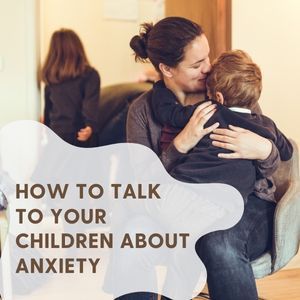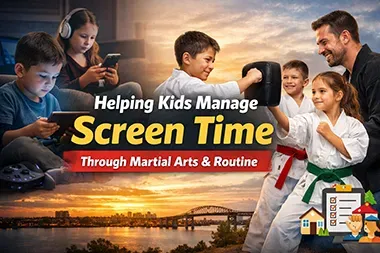How to Talk to your Children About Anxiety
Anxiety is a common problem that affects many children

Anxiety can cause a range of symptoms, including feeling restless or irritable, having trouble concentrating, and feeling like your heart is racing. Anxiety can also make it hard to fall asleep or stay asleep. For many children, anxiety is a normal part of growing up. But for some children, anxiety can be more severe and last for a long time. If your child is struggling with anxiety, there are things you can do to help. Talk to your child's doctor about what you can do to help your child manage anxiety. You can also seek counseling or therapy for your child. Helping your child learn how to manage anxiety can help them lead a healthy and happy life.
Explain what anxiety is and how it makes people feel
Anxiety is a mental health condition that causes people to feel extreme worry, tension, and nervousness. It can be triggered by a variety of things, including stress, life changes, and trauma. For some people, anxiety can be so severe that it interferes with their daily lives. Symptoms of anxiety include racing thoughts, sweating, heart palpitations, and difficulty breathing. People with anxiety may also experience dizziness, headaches, and nausea. While there is no one-size-fits-all solution for treating anxiety, there are a number of effective treatments available. These include therapy, medication, and relaxation techniques. With treatment, many people with anxiety are able to live healthy and fulfilling lives.
Help your children understand why they experience anxiety
As a parent, it's natural to want to protect your children from any harm – including emotional harm. But the fact is, anxiety is a normal and necessary part of life. It's an adaptive response that helps us deal with potentially stressful situations.
Of course, that doesn't make it any easier to watch your child suffer from anxiety. But by helping them to understand why they're experiencing anxiety, you can give them the tools they need to cope with it in a healthy way.
Anxiety is caused by a combination of genetic and environmental factors. If you have a family history of anxiety, your children are more likely to experience it themselves. And if they're exposed to stressful events or situations – such as bullying, divorce, or illness – that can also trigger anxiety.
It's important to remember that everyone experiences anxiety differently. Some people feel it in their physical bodies, while others experience it as racing thoughts or negative emotions. The key is to help your child learn how to identify their particular symptoms and manage them in a way that works for them.
There are many ways to do this, but some basic tips include encouraging healthy coping mechanisms like exercise and relaxation techniques, and helping them to develop a support system of family and friends. You might also want to consider seeking professional help from a therapist or counsellor who specializes in treating anxiety in children.
It's important to talk to your children about anxiety in a way that is age-appropriate
Mental health is an important topic that should be discussed with children of all ages. However, it's important to tailor the conversation to the child's age and level of understanding. For younger children, simple explanations about what anxiety is and how it can affect the body can be helpful. It's also important to reassure them that it's normal to feel anxious at times and that there are ways to cope with anxiety. For older children and teens, more in-depth conversations about anxiety can be helpful. This can include discussions about triggers, symptoms, and treatment options. Ultimately, the goal is to help your child understand anxiety and feel equipped to manage it in a healthy way.
Show them how to cope with their anxiety in healthy ways
It's important to remember that everyone copes with anxiety in different ways. Some people may need medication to manage their symptoms, while others may find that therapy or lifestyle changes are more effective. However, there are some healthy coping mechanisms that can help everyone deal with anxiety in a more positive way.
One of the most important things you can do is to stay physically healthy. Exercise releases endorphins, which have mood-boosting effects, and it also helps to reduce stress levels. Eating a balanced diet and getting enough sleep are also important for maintaining your mental health. Additionally, try to avoid alcohol and drugs, as they can actually increase anxiety levels in the long run.
Another helpful tip is to connect with others. Talking to friends or family members about your anxiety can make you feel less alone and help you to find support and understanding. There are also many online forums and support groups for people with anxiety, which can be a great resource. Finally, try to focus on the positive aspects of your life and on things that make you happy. This can help you to reframe your thoughts and put your anxiety into perspective.
Seek professional help if your child's anxiety is severe or interfering with their life in a negative way
Anxiety is a normal part of life, but for some children, it can be overwhelming. If your child's anxiety is severe or interfering with their life in a negative way, it's important to seek professional help. A mental health expert can work with your child to identify the source of their anxiety and develop coping mechanisms. In some cases, medication may also be recommended. Don't hesitate to reach out for help if you're concerned about your child's mental health. It could make all the difference in their ability to cope with anxiety.
Anxiety is a normal part of life for many people, but for some children it can be overwhelming. If your child's anxiety is severe or interfering with their life in a negative way, it's important to seek professional help. A mental health expert can work with your child to identify the source of their anxiety and develop coping mechanisms. In some cases, medication may also be recommended. Don't hesitate to reach out for help if you're concerned about your child's mental health. It could make all the difference in their ability to cope with anxiety.



